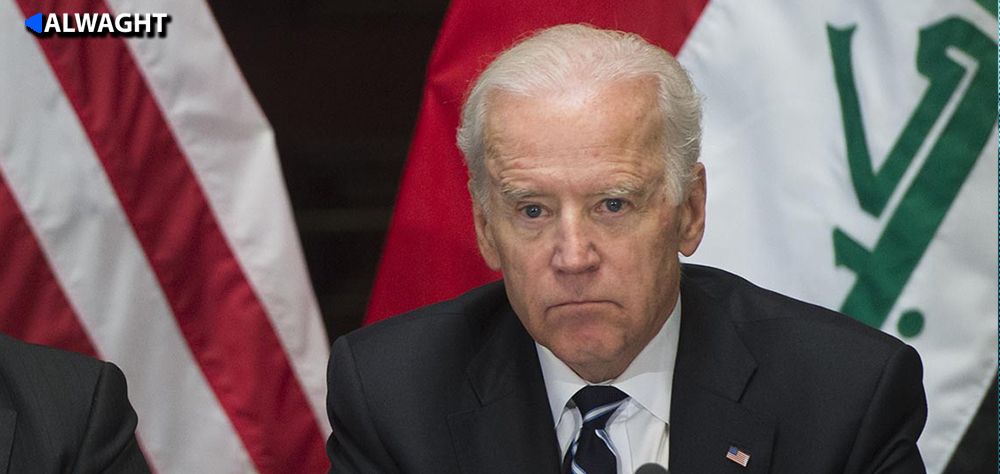Alwaght- Less than a month after his inauguration, Joe Biden and his foreign policy team have made clear their stances almost on all important foreign policy cases. While the new US president was expected to reveal a new policy regarding Iraq, he has so far avoided to do so. Even in his last Thursday important speech in which he outlined his foreign policy approach, the Iraqi case remained unaddressed.
But why has the White House remained silent about Iraq? Will such silence signal Iraq significance downturn in the US foreign policy under Biden?
Iraq’s place in Biden foreign policy
The new US administration's policy in West Asia region, and in particular in Iraq, is still unclear. However, both in terms of Biden's track record in US policy toward Iraq and in terms of Iraq's weight in regional equations, one can speak of its importance in Biden's foreign policy.
Joe Biden has a long history of active involvement in US strategy on Iraq since 2000 in various administrations. He has also visited Iraq several times as a senator and vice president. As chairman of the Senate Foreign Relations Committee, Biden was instrumental in authorizing President George W. Bush to start the 2003 Iraq war. He also proposed partition of Iraq on the basis of ethnic and sectarian divisions in a 2006 proposal in the New York Times. After entering the White House as Vice President, he was appointed by President Barack Obama to oversee the Iraq case.
On the other hand, it is not just Biden who is known in the new US administration for having a significant track record in Iraq. Secretary of Defense candidate Lloyd Austin and Secretary of State Antony Blinken are both well acquainted with Iraq. Austin served as military commander during invasion of Iraq in 2003 and later served as US Central Command (CENTCOM) commander, overseeing the withdrawal of American troops and their return to Iraq under the pretext of fighting ISIS terrorist organization. Biden also named Barbara Leaf as Middle East and North Africa director general at the National Security Council and Brett McGurk as special coordinator for Middle East and North Africa affairs, putting the two seasoned diplomats at the head of the White House regional policy.
“Biden is well known to all the major Iraqi leaders who have met with him many times,” said Michael Knights, a fellow at the Washington Institute, adding: “This is reassuring for them and indicates that Iraq will get good attention in the Biden White House.”
But regardless of the Biden and his foreign policy team’s record of focus on Iraq, the Arab country has had a special place in the American regional policy since 2003, the year the US invaded Iraq and ended Baathist rule of Saddam Hussein.
Factors such as Iraq's important role in the global energy market, its presence at the heart of the regional crisis and dispute, proximity to Iran as a major threat to American interests in the region in the eyes of US officials, important position in regional rivalries between Iran and US allies such as Saudi Arabia and the Israeli regime, being a major base for the American regional military presence and its importance in Syria campaign, especially given the impossibility of using the Incirlik base after disputes with Turkey over White House support for the Syrian Kurds, and also Baghdad’s place in Washington’s international prestige all demonstrate Iraq’s significance in the American West Asia policy. Even under Trump, Iraq was an exception in the president’s “exit doctrine” which favored pulling out of the region as part of “pivot to East” strategy. In fact, Trump’s pro-withdrawal approach in Afghanistan and Syria did not cover Iraq.
Biden silence under compulsion
In such circumstances, it can be said that Biden's silence on Iraq is more about compulsion and confusion the White House politicians face in their push to step out of Iraq challenges. Biden is heir to conditions that tie his hands for taking an approach the outcome of which is continuation of the American military presence in the Arab country. An Iraqi parliament’s resolution to expel the American forces from the country has fully marred any US presence legitimacy. And under Trump, the White House went to great lengths, from economic sanctions threat and closing down embassy in Baghdad to taking military action against the resistant groups in Iraq and setting timetable for withdrawal and stay under NATO flag to alleviate the anti-American sentiments Iraq is living, to circumvent the parliamentary bill, but finally met its failure. Even in recent months, Biden has put the plan to revive ISIS on the agenda with the cooperation of the Saudis, but it has not gone anywhere with the sophistication showed by the people and the armed forces, particularly the Popular Mobilization Forces (PMF).
Meanwhile, Iraqi resistant groups announced that they will not wait Biden pullout plan declaration, and in case of the new administration’s waste of time, they would step up military actions against the occupying forces. So, the closure of way of political maneuvering for Biden explains why the new president chooses to be silent on Iraq case.



























